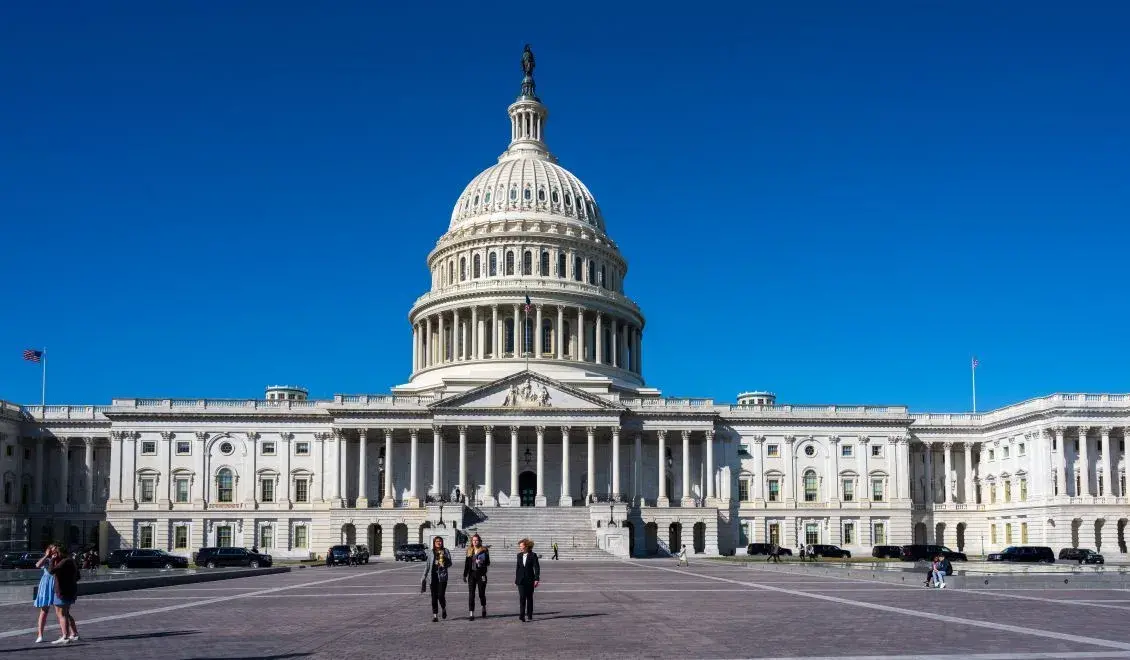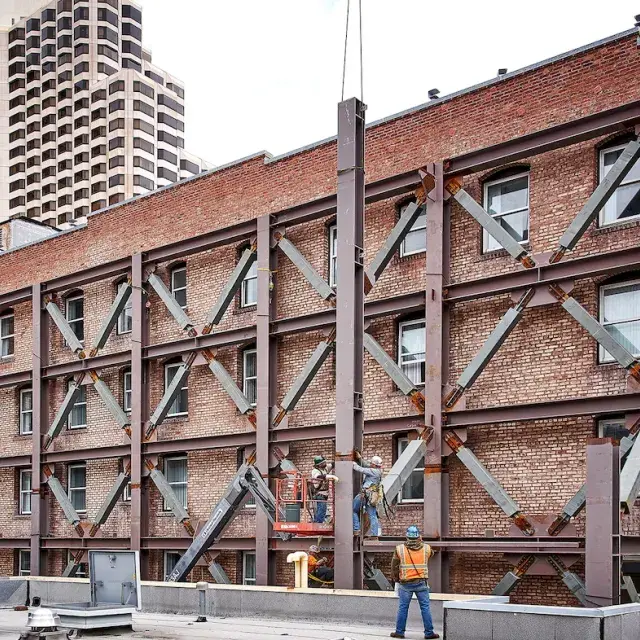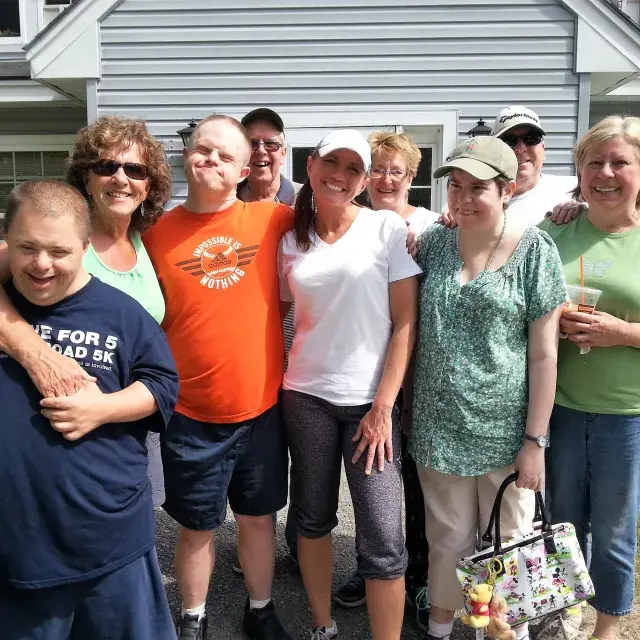The Senate Appropriations Committee approved its HUD fiscal year 2026 (FY26) spending bill proposal on July 24, rejecting many of the drastic cuts and proposals to consolidate rental assistance and homelessness programs that were included in the President’s Budget Request, and avoiding many of the cuts that were proposed in the House bill.
The Senate Appropriations Subcommittee for Transportation, Housing and Urban Development, and Related Agencies (THUD) proposed $73.3 billion for HUD in net discretionary funding, $3.1 billion above what the agency currently is funded at for FY25 under the full year Continuing Resolution.
In addition to rejecting the administration’s proposals to consolidate rental assistance programs into a state-based rental assistance program and merging the Homeless Assistance Grants and the Housing Opportunities for Persons with Aids programs to the Emergency Solutions Grant programs — the Senate proposal provides overall higher levels for the rental assistance programs compared to the House proposal. The bill does also not include any language that would provide additional flexibility for Public Housing Agencies to enact time limits or work requirements for rental assistance programs.
Overall, the legislation provides higher amounts for housing and community development programs including providing level funding for the HOME Investment partnership program, which was proposed to be eliminated in the President’s Budget Request and House proposal. The bill would provide a slight reduction to the Community Development Block Grant program but does include funding for the PRO Housing Grant program.
A breakdown of the affordable housing and community development spending levels can be found in our Fiscal Year 2026 Budget Request and Appropriations Chart. Here’s where funding for some of HUD’s key programs stands compared to last year’s budget:
- $37.4 billion for Tenant-Based Rental Assistance (Housing Choice Vouchers), a $1.3 billion (3%) increase from FY25 and $2.1 billion (6%) above the House.
- $17.8 billion for Project-Based Rental Assistance, a $1.3 billion increase (8%) from FY25 and $677 million (4%) above the House.
- $8.4 billion for Public Housing Fund, a $400 million (5%) decrease from FY25. This total includes $4.87 billion for the operating fund, $602 million (11%) below FY25, and $3.2 billion for the capital fund, level with FY25.
- $972 million for Section 202 Housing for the Elderly, a $40 million (4%) increase from FY25 and $12 million (2%) above the House.
- $265 million for Section 811 Housing for Persons with Disabilities, $8 million (3%) above FY25 and $3 million (1%) above the House.
- $4.5 billion for the Community Development Fund (CDF). Of this, $3.1 billion is allocated for the CDBG, which is $200 million (6%) less than what was provided in FY25 and the House proposal. An additional $1.3 billion in CDF is for earmarks and congressionally directed spending projects. The Senate also includes $60 million for the PRO Housing Grants program, $40 million (40%) less than what was provided in FY25. The House no funding for the PRO Housing Grants programs
- $1.25 billion for the HOME Investment Partnership Program, level with FY25. The House proposed to eliminate funding for the HOME program.
- $4.51 billion for Homeless Assistance Grants, $450 million (11%) above FY25 enacted. This includes $290 million for Emergency Solutions Grants (ESG) and $4 billion for Continuum of Care (CoC), rejecting the administration’s proposal to consolidate the Housing Opportunities for Persons with Aids, ESG, and CoC programs.
- $1.35 billion for Native American Programs, level with FY25. This includes $1.11 billion for the Native American Housing Block Grant formula program and $100 million for the competitive program, both level with FY25.
$156 million for the Family Self-Sufficiency (FSS) program, $15.5 million (11%) above FY25 and $31 million (25%) above the House. - $86.4 million for the Fair Housing Activities, level with FY25 and $56 million (193%) above the House. The proposal maintains the funding for the Fair Housing Assistance Program ($26 million), National Fair Housing Training Academy ($1.5 million), and the Limited English proficiency initiative ($1 million). The bill also maintains funding for the Fair Housing Initiatives Program (FHIP) at $56 million, which was proposed to be eliminated in the President’s Budget Request and House proposal.
- $49 million for the Section 4 program, a $7 million (17%) increase from FY25 and the House.
- $40 million for the Choice Neighborhoods Initiative, a $35 million (47%) decrease from FY25. The House proposed to eliminate funding for this program.
- $10 million for the Preservation and Reinvestment Initiative for Community Enhancement (PRICE) program, level with FY25. The House proposed to eliminate funding for this program.
U.S. Department of Agriculture (USDA)
On July 10, the Senate Appropriations Committee unanimously approved the proposed spending levels for rural housing programs under the USDA Rural Housing Service. Below is an overview of the spending proposal:
- $1.715 billion for Section 521 Rental Assistance, $73 million (4%) above FY25 and equal to the House. This bill continues to provide authority for its mortgage decoupling pilot, increasing the number of eligible units from 1,000 units to 5,000 units.
- $1 billion for the Section 502 Single Family Housing Direct Loan Program, $284 million (40%) above FY25 and $120 million (14%) above the House. It also provides $5 million for the Tribal Direct Relending Pilot, $367,000 above FY25 and $1 million below the House.
- $400 million for the USDA Section 538 guaranteed loans to preserve and rehabilitate USDA rental housing, level with FY25 and the House.
- $50 million for the Section 515 Rural Rental Housing program, $3 million (6%) above FY25 and $10 million (17%) below the House.
- $34 million for the Multi-family Housing Preservation and Revitalization Program, $12 million (26%) below FY25 and $4 million (13%) above the House.
Congress is not expected to pass any of the 12 appropriations bills before the September 30 deadline. It is expected that there will be one or more continuing resolutions to extend funding to avoid a government shutdown. In the recent fiscal years, the first continuing resolution typically went well past Thanksgiving and lasted into the December holidays. Enterprise will continue to advocate to both chambers for the highest possible funding levels for affordable housing and community development programs.
To stay up to date with critical housing policy news, subscribe to our bi-monthly Capitol Express newsletter.



